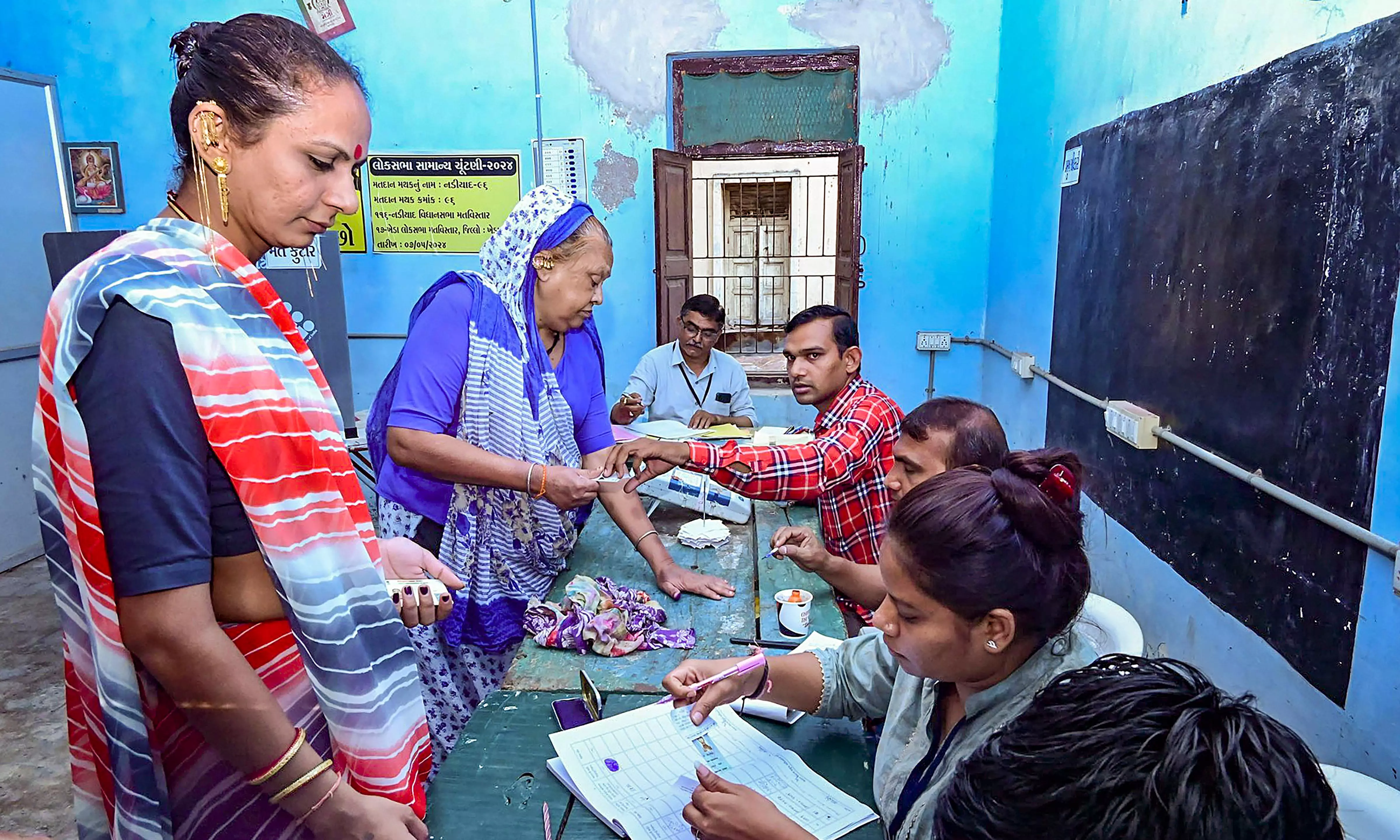
Why rollout of SIR has made Gujarat's Muslims and tribals anxious
Special revision of voters' list raises fears of exclusion among displaced tribals, 2002 riot victims, and others lacking valid documents ahead of upcoming polls

The Election Commission (EC) is set to launch a Special Intensive Revision (SIR) of electoral rolls in Gujarat starting Wednesday (October 29), aimed at updating the voter list and identifying duplicate entries. As part of the exercise, Booth Level Officers (BLOs) will begin distributing unique enumeration forms to verify existing voters’ details.
The draft electoral rolls are scheduled to be published on December 9 for public scrutiny.
The revision comes in the run-up to local body elections anticipated in early 2026 and the state assembly polls due in 2027.
Tribals, Muslims anxious
However, the announcement has raised concerns, particularly among tribal and Muslim communities in the state.
Also read | SIR of over 15 crore voters begins in UP today, political storm likely
“One of the biggest challenges in implementing the SIR in Gujarat will be identifying and including the large number of displaced individuals. Gujarat has seen mass displacement due to a range of developmental and industrial projects—be it the bullet train corridor through Central and South Gujarat, freight corridors, GIDCs, expressways, or the demolition of over 1.5 lakh homes in Chandola (Ahmedabad) and thousands of Muslim fishermen’s homes along coastal Saurashtra under Operation Safai,” said advocate Shamshad Pathan, speaking to The Federal.
Major concerns over voter exclusion in Gujarat revision
♦ Displaced families lack valid address documents
♦ 2002 riot victims still missing from rolls
♦ Tribals living in undocumented settlements excluded
♦ Converted tribals face ID validity issues
♦ Voter ID and Aadhaar not accepted as proof
“These people often lack documentation at their new or temporary locations. Many are living in tents and have no fixed address. How will BLOs find them when they no longer reside at their official addresses?” he asked.
Displaced by 2002 riots
Pathan also said that over 3,000 families displaced during the 2002 riots continue to live in 83 relief colonies across the state without legal ownership of their homes. “Fifteen colonies in Ahmedabad, 17 in Anand, 13 in Sabarkantha, and others in Panchmahal, Mehsana, Vadodara, Aravalli, Bharuch, and Kheda districts are still occupied by riot victims. These houses are owned by religious organisations that haven't transferred ownership. Residents only possess voter ID and Aadhaar cards—neither of which are valid for SIR verification. What will they do?” he wondered.
Also read | SIR a ‘backdoor implementation of NRC’, warns Kerala CM Pinarayi Vijayan
The exclusion of Muslim riot victims during the 2002 SIR revision remains an unresolved issue. Many displaced individuals continue to be left out of the voter rolls.
Under the current SIR process, BLOs will compare the 2002 and the latest voter lists, categorising voters into six groups: A, B, C, D, E, and F. Only those who can furnish one of the 11 officially accepted documents will be validated as voters.
Muslims lost documents
The training of personnel is underway, followed by house-to-house verification scheduled between November 4 and December 4.
“The BLOs will cross-check names with the 2002 SIR records. But between 1.5 to 2 lakh Muslims displaced during the riots were never included in those lists. Most of their documents were destroyed along with their homes. This is going to be a serious issue,” Mujaheed Nafees, a minority rights activist based in Gujarat, told The Federal.
Similar concerns are being raised by tribal communities in South Gujarat.
Makeshift homes
“Over 41,000 tribal families have been displaced in the past decade due to projects like the Sardar Sarovar Dam and the Statue of Unity in Narmada district,” said tribal activist and former AAP leader Praful Vasava.
Also read | AIADMK, DMK clash over voter roll revision in poll-bound Tamil Nadu
“Many Bhil tribal families now live in makeshift, undocumented settlements in forest areas of Bharuch and Narmada districts. Though they were promised land for rehabilitation, most are yet to receive any allocation. Without homes, how can they produce documents?” he told The Federal.
Vasava also highlighted another issue: “Many tribals who converted to Christianity were forced to reapply for documents after the Gujarat Freedom of Religion Act was retrospectively enforced from 2003. Conversions without the Collector’s approval were invalidated. While some managed to get new documents, many still hold IDs under Christian names, which are now deemed invalid. This will create major hurdles in tribal-dominated regions like Dang, Tapi, and Vapi.”
Timing of SIR
The timing of the SIR process also coincides with the Congress party’s ongoing ‘Vote Chori’ (vote theft) campaign. The party has alleged that over 62 lakh entries across 84 seats in Gujarat are “suspicious” and potentially include ghost voters.
“The SIR exercise has been a failure in Bihar, with 65 lakh names reportedly deleted. If the process lacks transparency, what can we expect in Gujarat, where the BJP has held power for decades?” said Gujarat Pradesh Congress Committee (GPCC) president Amit Chavda in a media interaction.
“There have also been concerns about the independence of the ECI in the past. We no longer trust the institution, and we will oppose the SIR process in Gujarat,” Chavda added.

